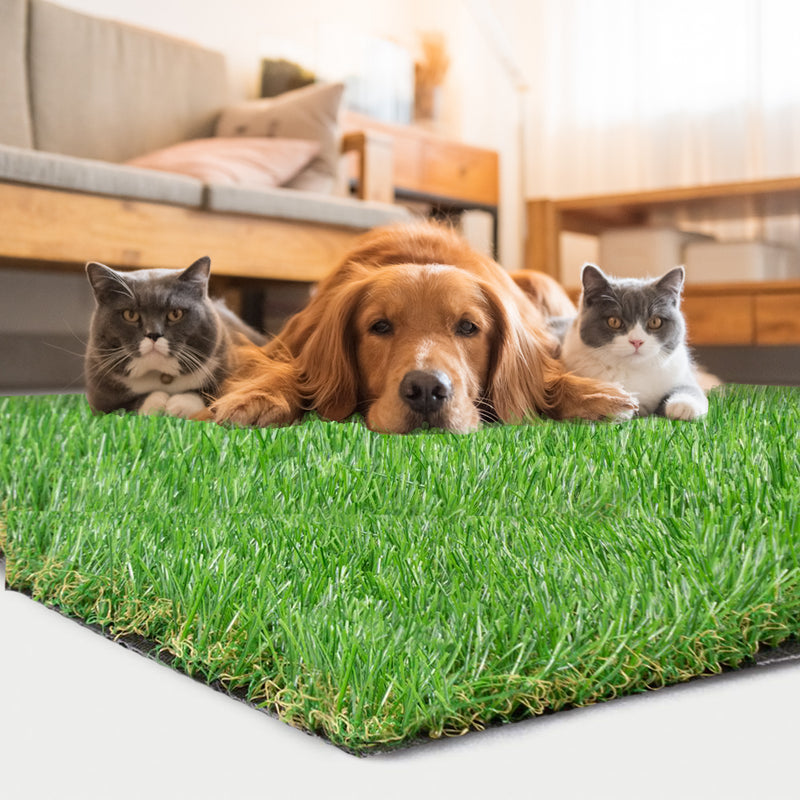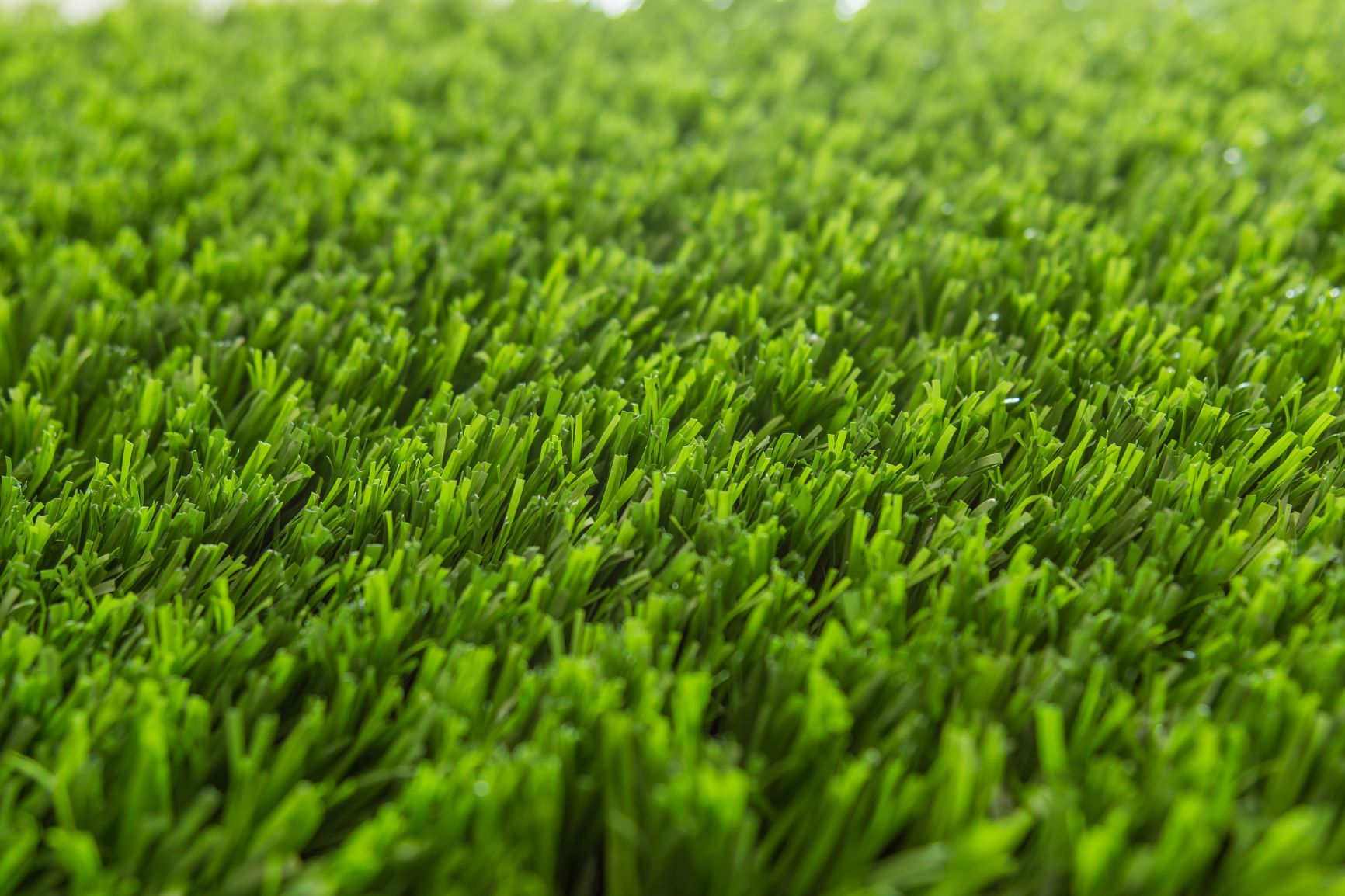Explore the Environmental Conveniences of Opting for Synthetic Grass Solutions
The fostering of synthetic grass options offers a compelling chance to deal with pushing ecological challenges. By substantially minimizing water usage and lessening the application of damaging chemicals, these choices not just promote sustainable landscaping yet also protect local ecological communities. Additionally, the lower carbon impact connected with decreased maintenance tasks contributes to an extra sustainable method to land monitoring. However, the ramifications of these advantages expand past simple preservation initiatives, increasing inquiries regarding their long-term effect on habitat conservation and general eco-friendly equilibrium. Checking out these dimensions discloses an intricate interplay worth taking into consideration.
Water Conservation Conveniences
One of the most considerable benefits of fabricated lawn is its capability to preserve water. In comparison, synthetic grass does not require watering, substantially lowering the general demand for water sources.
By eliminating the demand for regular watering, man-made grass contributes to sustainable landscape practices and helps reduce the ecological influence of extreme water usage. Moreover, the conservation of water extends to the decrease of overflow, which can lead to dirt disintegration and river air pollution.
Furthermore, the installation of synthetic grass allows towns and homeowners to allot water resources extra effectively, concentrating on necessary usages such as drinking water and agriculture. The change towards artificial turf not only promotes liable water use however additionally straightens with wider ecological goals targeted at protecting natural deposits.
As areas significantly focus on sustainability, the water conservation advantages of synthetic grass present a compelling situation for its fostering in industrial and domestic landscape design projects.
Decreased Chemical Use
The transition to artificial lawn dramatically lowers the dependence on chemical treatments typically used in natural lawn upkeep. Standard turf management commonly includes the application of herbicides, pesticides, and plant foods to promote development and control bugs. These chemicals can pose dangers to human health and wellness, regional wildlife, and the environment, adding to dirt and water contamination.
In contrast, synthetic lawn removes the need for these dangerous substances. As soon as mounted, it calls for minimal maintenance, largely including normal cleaning and seldom infill replenishment. This reduction in chemical usage not only profits the instant atmosphere but additionally adds to more comprehensive eco-friendly security. By minimizing the release of artificial substances right into the environment, synthetic grass promotes healthier soil and water supply.
Moreover, the absence of chemical overflow connected with artificial lawn setups helps secure regional waterways from pollution, supporting water life and keeping biodiversity. Turf installation phoenix az. As communities significantly prioritize lasting methods, selecting synthetic grass provides a feasible service that straightens with ecological conservation objectives. Via this shift, homeowner can delight in rich eco-friendly rooms without endangering eco-friendly health, leading the way for a more sustainable future
Lower Carbon Footprint

Moreover, the setup of fabricated turf can cause considerable water conservation. Natural lawns call for substantial amounts of water for irrigation, which not just contributes to the carbon impact related to water removal and therapy but likewise pressures regional water sources. On the other hand, synthetic grass needs very little maintenance, calling for no watering, therefore considerably reducing water usage and its associated energy expenses.
In addition, the longevity of synthetic grass adds to its reduced carbon influence. With a life-span of as much as 15 years or even more, the need for regular substitutes is reduced, leading to less waste and lower power intake in production and taking care of standard turf options. On the whole, synthetic grass provides a sustainable choice look at here for eco conscious landscaping.
Habitat Conservation
Environment conservation is a vital factor to consider in the argument over landscape design selections, especially when contrasting synthetic grass to all-natural lawn. All-natural lawn yards commonly require considerable upkeep, consisting of using pesticides, plant foods, and herbicides, which can detrimentally impact neighborhood ecological communities. These chemicals can leach right into the dirt and rivers, hurting native plants and animals and disrupting local environments.
In comparison, synthetic grass provides an opportunity to decrease the environmental impact of landscape design. By selecting synthetic lawn, house owners can reduce the interruption of natural environments associated with conventional lawn treatment practices. Synthetic grass eliminates the demand for unsafe chemicals, thereby protecting nearby wild animals and preserving the honesty of surrounding ecological communities. The setup of synthetic lawn can lead to the conversion of former turf areas into even more biodiverse landscapes, such as pollinator gardens or native plant areas, which can sustain local wildlife.
Inevitably, the shift to fabricated turf not just saves water and reduces maintenance efforts however also cultivates a more unified connection between human tasks and the all-natural atmosphere, promoting habitat conservation in the process.
Long-Term Sustainability
Long-lasting sustainability is a vital consider reviewing the advantages of fabricated grass over conventional lawn yards. One this content of one of the most considerable benefits of synthetic grass is its toughness; it can last as much as 15-20 years with minimal maintenance, whereas all-natural turf needs constant reseeding and substitute. This durability reduces the requirement for continuous sources, such as water, fertilizers, and chemicals, which are crucial for keeping a healthy and balanced turf lawn.
Furthermore, synthetic grass contributes to a reduction in carbon discharges related to grass care tools. Typical grass usually call for gas-powered mowers, trimmers, and blowers, all of which contribute to air pollution. Turf installation phoenix az. In contrast, synthetic grass removes the requirement for such equipment, promoting a cleaner environment
Additionally, the manufacturing of synthetic grass increasingly makes use of recycled materials, improving its sustainability profile. As manufacturers embrace environmentally friendly techniques, the environmental footprint of artificial grass proceeds to diminish.

Verdict
The adoption of artificial lawn options provides substantial ecological advantages, including substantial water preservation, reduced reliance on hazardous chemicals, and a reduced carbon footprint. In addition, man-made turf help in preserving all-natural habitats by lessening land disturbance and advertising long-term sustainability via using resilient materials. Jointly, these factors highlight the capacity of synthetic grass to contribute favorably to environmental health and offer a sensible alternative to standard landscaping practices in a progressively resource-conscious globe.
In comparison, man-made grass does not require watering, dramatically decreasing the total need for water sources. By minimizing the launch of synthetic compounds into the community, artificial lawn promotes much healthier dirt and water systems.
In addition, the installment like it of synthetic turf can result in substantial water conservation. In contrast, fabricated grass requires marginal upkeep, calling for no watering, thereby substantially minimizing water use and its linked power prices.
